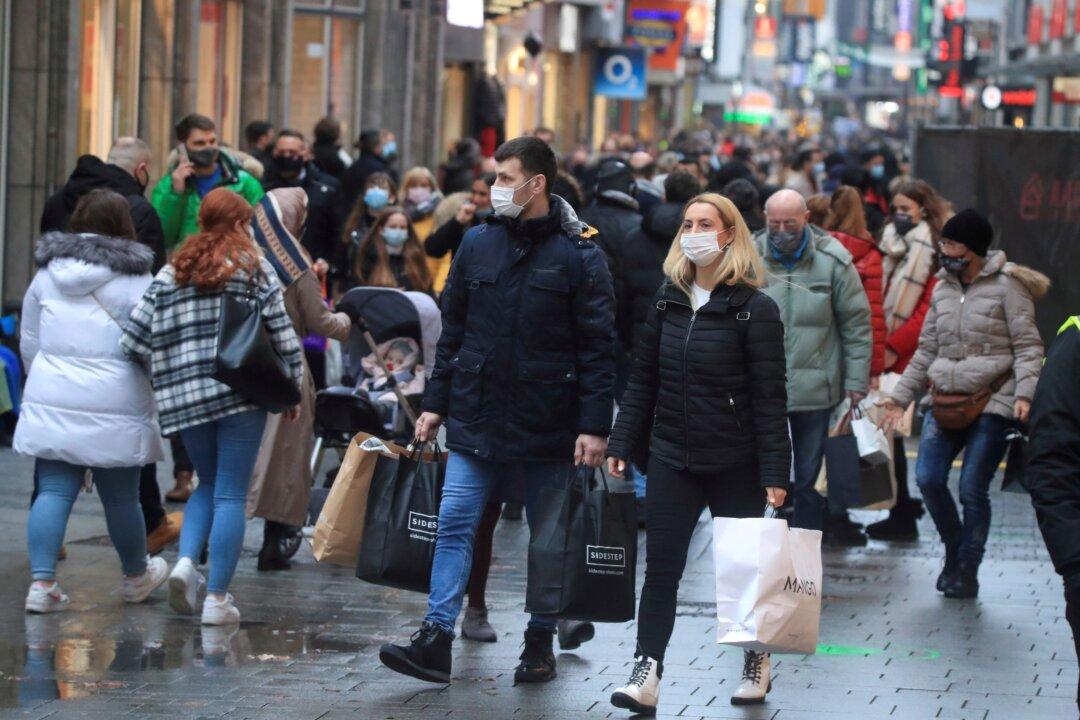LONDON—Euro zone business growth unexpectedly accelerated this month but another wave of coronavirus infections and new restrictions, alongside price pressures, are likely to put a dent in December’s expansion, a survey showed on Tuesday.
IHS Markit’s Flash Composite Purchasing Managers’ Index, a good indicator of overall economic health, jumped to 55.8 in November from 54.2 in October.





